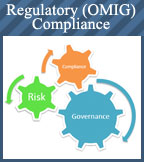Medicaid Compliance for Early Intervention Primer
Course Outcomes:
Please scroll down for outcomes per discipline and other information, such as Target Audience, Course Content and Level
Course intent: To provide speech language pathologists & occupational therapists, as well as other early intervention providers with the ethical, legal, programmatic and professional background to understand the relevant issues regarding Medicaid compliance so as enable them to practice early intervention in a manner that is ethically compliant with the mandates of federal and state early intervention regulations.
Relevance to occupational, speech language pathology, physical therapy & other early intervention providers: Aforementioned disciplines therapists and other early intervention providers treating children between the ages of 0-3 in the early intervention setting may be legally liable for errors and malfeasance for non-compliance of procedures, and must practice in accordance to standards of conduct required of early intervention providers.
Outcomes:
Provider will be able to: Identify the components of rampant fraud which occurs with increased frequency in the early intervention practice setting which, unlike physician billing, invoices on a per-unit basis for given time span.
Provider will be able to: Explain the meaning of operational, programmatic, and fiscal compliance, and how to incorporate these standards into your professional practice.
Provider will be able to: Describe self-examination and introspection of one’s own invoicing and time-keeping practices, to ensure proper fiduciary and programmatic moral and ethical conduct.
Provider will be able to: Identify practical situations via examples of real/hypothetical situations; understand the theoretical basis for decision making as well as legal standards of behavior consistent with the Texas (and other State board) Practice Acts & APTA code of ethics for professional conduct.
Provider will be able to: Explain terms and concepts such as the investigative process, self-disclosure, incident, reporting, restitution, non intimidation and retaliation, as well as whistleblower protection.
Provider will be able to: Identify the ethical constraints and professional obligations imperative to early intervention professionals with respect to Medicaid.
Speech Language Pathology Classification Code:
Target Audience: Speech Language Pathologists, Speech teachers and Audiologists, Occupational therapists, COTA, PT, PTA, SE/SI, SW
Course Level: Various Content: Related
Subject Code: 7025 Public Policy Issues Associated with Speech, Language, Hearing and Related Disorders
AOTA Classification Codes:
Classification Code:
Professional Issues
Contemporary Issues & trends
Evidence Based Practice
Globalization of Profession
Professional Development & Continued Competency
Target level: All practitioners; Introductory
Course Agenda
Introduction
Case Studies
What is "Regulatory Compliance"
OMIG
Impact on Early Intervention
Outcome of "Non-Compliance"
Corporate Integrity Agreement
Fiduciary Vs. Operation (Programmatic)
Compliance Enforcement
Reporting an "Incident"
Self Disclosure Protocol
Investigative Process
Resolution & Closure
Mandated Elements of Formal Compliance
Minimum Requirements of Compliance
Program Interrelation Between Code of Conduct and Procedures & Code of Ethics
Code of Conduct Policy & Procedures
Employee/Staff Guidance & Training
Central Role of "Board" in Compliance Programs
Role of Compliance Officers
Fiduciary-Ethical Compliance
Mandatory Reporting and Disciplinary Policies
Responding to, & Resolution of Compliance Issues
Operational Compliance
Quality Assurance






